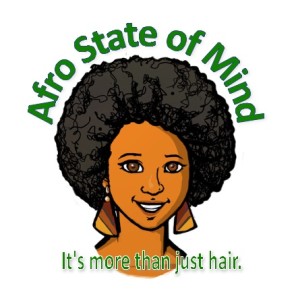Day 5: Nia
Purpose
To make our collective vocation the building and developing of our community in order to restore our people to their traditional greatness.
Chance has never yet satisfied the hope of a suffering people. Action, self-reliance,
the vision of self and the future have been the only means by which the oppressed
have seen and realized the light of their own freedom. –Marcus Garvey
In this message, Brother Garvey identifies the power of Nia – of having a purpose and a vision for our future. Garvey recognized that African people will never secure our freedom by relying on chance or happenstance. We can not be content to rely on hope, prayers, or faith alone. We must be purposeful and take concrete, proactive steps in order to bring about permanent change to the condition of our community.
The Universe responds to the intents of our hearts. The Creator responds to what we intend, what we purpose, and what we aim our spiritual, mental and physical energy towards. Together, we must be purposeful and determined to make our primary collective purpose one of healing our people and improving our condition throughout the world. Today, as you focus on Nia, try to consider your purpose and how it might be used to better our community.
********
The 28 Day Nguzo Saba Project
Starting on January 26, 2014, a non-profit I co-founded, Sankofa Community
For each day of Kwanzaa 2014 SCE sent out one daily devotional that incorporated the Kwanzaa Nguzo Saba principle for that day. These devotionals were based on quotes from our ancestors, elders and African proverbs and will tie in the meaning of that day’s principle.
After Kwanzaa officially ended on January 1, 2015, SCE continued the Nguzo Saba Devotion project for an additional 21 days. Why? Well there are several reasons.
1. In light of the traumas we are currently facing as a community, 7 days is not enough time for us to address what we are dealing with.
2. It is generally believed that it takes 21 days to create/change a habit. We want our community to create new patterns of thinking that allow us to become a self sufficient community that can meet its own needs (like all healthy communities can do).
3. We believe Kwanzaa should be a verb. For a people who are still entrapped by the legacy of slavery and continuing institutional racism, it is imperative that we take every opportunity to be intentional about our healing on an on-going basis.
The 28 Day Nguzo Saba Devotion Project will provide the opportunity to reflect on powerful messages while learning how to apply the Kwanzaa principles to our daily lives.
As an example, on Mondays-when we celebrate the principle of Ujamaa (Cooperative Economics)-consider making an effort to only support Black owned businesses and institutions with your dollars. On Fridays-when we celebrate Umoja (Unity)-consider what you can do to create a stronger sense of unity within our community, i.e. be intentional about greeting each other with a smile or mending old wounds with past friends and family.
These and other efforts will increase our ability to make the principles of Kwanzaa and community uplift more relevant throughout the year.
I’m going to be posting one of these devotionals for the next 28 days. I strongly encourage you all to read & share/forward the devotions and meditate on the messages and wisdom provided.
Be well – and Happy Kwanzaa!
Day 1:
Principle: Umoja (Unity):
“To strive for and maintain unity in our family, community, nation and race.”
Proverb:
“Sticks in a bundle are unbreakable. ” ~Kenyan Proverb
Devotion Message:
During the Trans Atlantic Slave Trade, Africans were strategically pitted against one another. Slave owners knew that enslaved Africans who were unified would be far too powerful to exploit. Countless slave narratives and legends like the Willie Lynch letter explain the level of thought and planning that went into keeping Africans from realizing their collective power. These “man made” divisions still exist and continue to keep us from working toward our collective empowerment.
We can easily see numerous ways that our society keeps us divided today via music, class structures, skin color, materialism, mis-education and a variety of other mechanisms. For this reason, it is imperative that we remember this unifying proverb as we experience this phenomenon. One stick on its own is easily snapped in two. But sticks in a bundle are not easily broken.
We must remember that most of the divisions within the Pan-African community were planned and scripted for us. We must begin meditating on the principle of Umoja/Unity so that we will gain strength from each other and become the “sticks in a bundle” which are unbreakable.
********
Looking for more thoughts from an Afro State of Mind? Check out my book Afro State of Mind: Memories of a Nappy Headed Black Girl now available on Amazon.com in paper back or available here for e-book download! And if you want to stay connected follow me on Twitter, “like” Afro State of Mind on Facebook or catch up on my latest youtube videos!






[…] (see day 5 here) […]